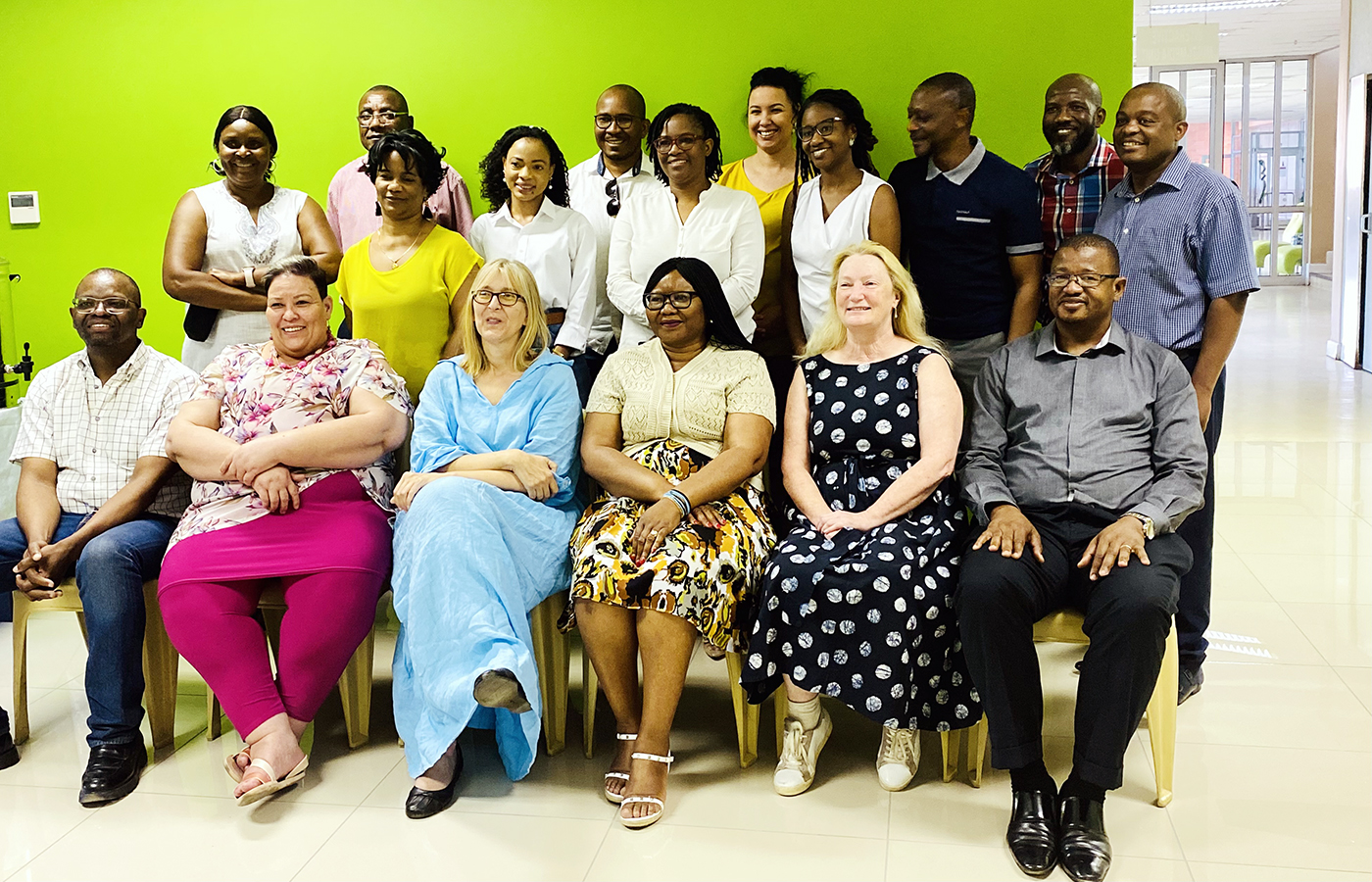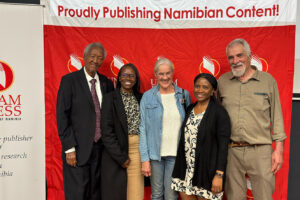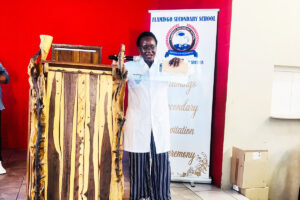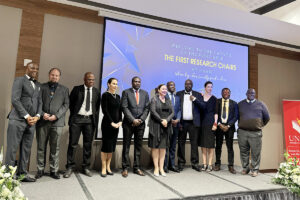In a dedicated effort to equip graduates with the essential attributes sought by employers, the University of Namibia (UNAM) hosted the Commonwealth of Learning (COL) intervention workshop, late last year. The workshop aimed to combine and implement strategies to align education with employability.
The conference was a pivotal moment and brought together esteemed members of UNAM’s management, executive deans, associate deans, distinguished personnel as well as some industry partners; NAMFISA, Huawei Namibia, O&L, NIED as well as the Ministry of Health and Social Services. The objective was clear: forge and devise tangible outcomes that would shape the future of education at UNAM.
Spearheading this conference was renowned Consultant, Prof Karen Ferreira-Meyers, contracted by the Commonwealth of Learning for her unparalleled expertise in the field. Hailing from the University of Eswatini, Prof Ferreira-Meyers possesses a wealth of knowledge and experience to unravel the essence of employability skills sought by today’s employers.
Prof Ferreira-Meyer’s insights delve into areas such as critical thinking, teamwork, and graduates’ adaptability to stepping into the professional world. “We have invited some representatives from industry employers. It was key to get feedback from organisations on what the industry needs and what they have identified as the attributes and skills that young graduates need to find employment and to stay employed,” she explained.
Employers, now more than ever seek candidates who not only hold academic credentials but also exhibit versatile skills like the ability to solve complex problems, technology savviness, and eagerness for continual learning and skills development.

Curriculum bridging the gap between industries and academia
Education Faculty Executive Dean, Prof Alfons Mosimane remarked that UNAM is already en route to instilling critical employability skills with its compulsory core semester modules that took effect this year following curriculum transformation.
The workshop was not merely a theoretical discourse but a practical evaluation of the employability attributes before and after UNAM’s curriculum transformation. Prof Ferreira-Meyers’ guidance provided a lens to measure the progress and effectiveness of these key attributes.
According to Lovisa Nghipandwa, Coordinator: Industry and Cooperative Education, faculties and industry deliberation were key. “Industry partners inform us about key graduate soft skills, what their strong points are, and areas of enhancement.
The university curriculum is halfway there but there is still room for improvement, especially with ever-evolving technologies that usher in new challenges thereby forcing students and graduates to up their skills.”
Ngipandwa maintained that the University is not just training students for the local market, but for the global market hence ensuring that they have a competitive advantage. The University is exploring options for virtual internships which will expose students to the global workforce by being able to work with international organisations thereby exposing them to diverse work cultures, intercultural exchanges, and global networks.
UNAM’s collaboration with the Commonwealth of Learning through the COL Conference marked a crucial step towards a future where graduates are not just equipped with academic knowledge but also primed for the challenges and opportunities that await them in the job market.





